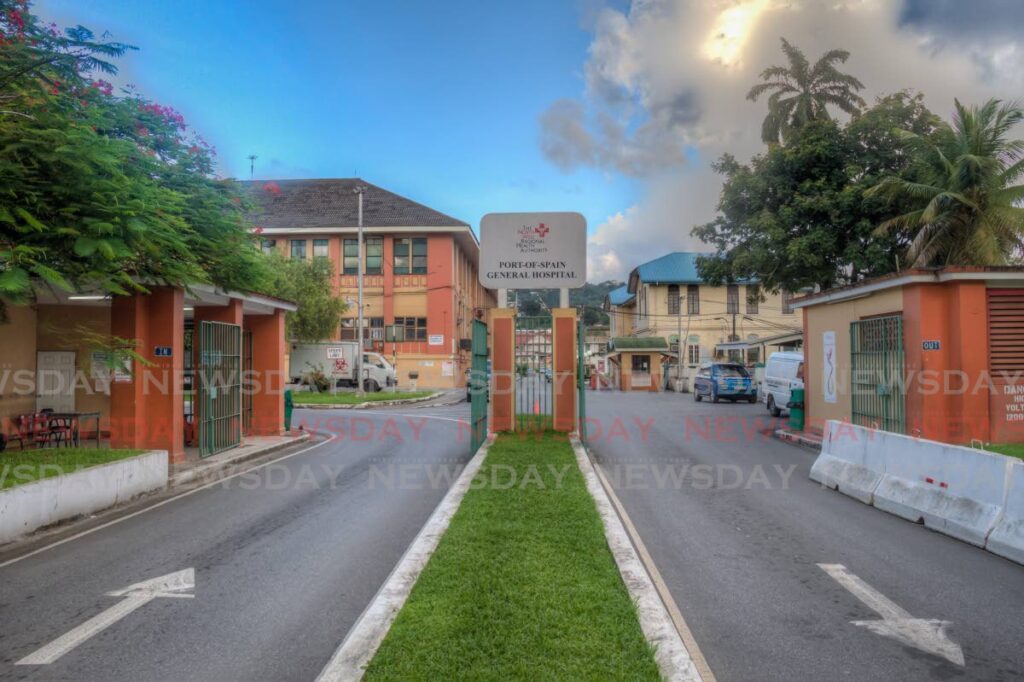NWRHA: 'We care for smallest, sickest babies'

THE North West Regional Health Authority (RHA) says it accepts the smallest and sickest babies from all other regional health authorities (RHA).
The authority made this statement in a newspaper advertisement published on April 22.
The other RHAs are the Southwest, North-Central Eastern and Tobago RHAs.
Some of the babies received by the NWRHA are smaller than 600 grams and spend close to three months in the neonatal intensive care unit (NICU) of the Port of Spain General Hospital (PoSGH), which falls under its jurisdiction.
The NWRHA's average admission rate for babies is 33 per month.
Last year, the authority reported 2,169 live births.
Of this number, 403 or 19 per cent were admitted to the NICU.
The NWRHA said of this number, 43 per cent were babies who weighed less than 2,500 grams and 21 per cent were less than 1,500 grams.
Of those admitted to the NICU, the authority said 19 died and this resulted in a neonatal mortality rate of eight per 1,000 live births.
In 2022, the authority said the neonatal mortality rate was 6.2 per 1,000 live births.
"There were fewer congenital anomalies."
Congenital anomalies are a wide range of abnormalities of body structure or function present at birth and are of prenatal origin. These anomalies may be external or internal.
Microcephaly, a condition in which a baby's head is much smaller than expected, is an example of the former.
The latter include congenital heart defects such as hypoplastic left heart syndrome, a birth defect that affects normal blood flow through the heart when the left side of the heart does not form correctly.
By definition, a neonate is any baby from birth to 28 days of life.
The NWRHA said, "In the NICU, the babies receive extra special care and attention to develop, grow and thrive so that they may eventually go home with their parents and have childhoods that are as normal as possible."
The smaller and more premature the baby is, the authority continued, the higher the risk of complications such as problems with brain development, cerebral palsy, blindness, chronic lung disease, deafness, infections and even death.
There are five neonatal units in the public healthcare sector, in Port of Spain, San Fernando, Mt Hope, Sangre Grande and Tobago.
Port of Spain, San Fernando and Mt Hope are equipped to manage very preterm babies, babies with surgical problems, babies with cardiac issues and those requiring very specialised care.
The NICUs in Sangre Grande and Tobago are equipped to manage moderate preterm babies.
But, the NWRHA said, these NICUs "do not have facilities to perform surgery or take care of babies with more specialised needs."
Together, the NICUs at all five RHAs manage over 2,000 babies per year, accounting for 12 per cent of the total births in TT.
Most neonatal units feature an open-bay design where five-six babies share a large room.
Each baby is placed in an incubator, which is usually shielded from the light to protect the newborn baby's sensitive eyes. Incubators are designed to create a warm, comfortable environment for newborns to be cared for and grow optimally.
The NWRHA said, "Each baby will have at its bedside a vital signs monitor which evaluates the heart rate, blood oxygen levels, blood pressure, breathing rate and temperature, a ventilator which may be needed to provide the baby with respiratory support for underdeveloped lungs or for pneumonia or other conditions, infusion pumps to supply fluids and medication, a lamp or procedure light, a phototherapy unit (blue light lamp to treat jaundice – when their skin or the whites of the eyes turn yellow. It can be a sign of a serious illness such as liver disease and requires urgent medical help), a suction machine to remove secretions from the baby's mouth, a breathing tube and a small cupboard for diapers and medical supplies."
The authority added, "Depending on how critical the baby is, they may appear to have tubes and wires everywhere and this can be quite intimidating to parents, especially on their first visit."
The NWRHA said the various medical apparatus parents see when they visit their babies in the NICU is usually explained to them by the doctors and nurses on the unit "in order to reduce the anxiety parents may feel on seeing their baby."
Seven babies died of a bacterial infection at the PoSGH's NICU between April 4 and 9.


Comments
"NWRHA: ‘We care for smallest, sickest babies’"